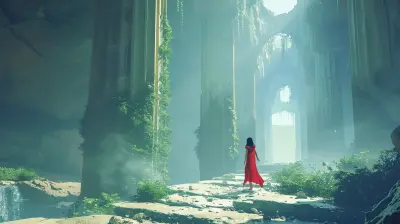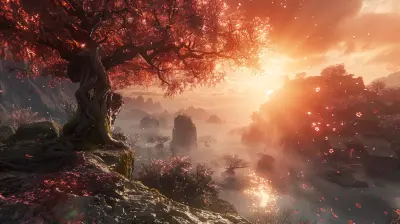The Power of Player Choice in Open World Games
7 August 2025
Open world games have come a long way since the early days of pixelated adventures. Back then, exploring a vast landscape was impressive enough. But today? It’s not just about roaming freely — it’s about making decisions that shape your journey. The power of player choice in open world games is transforming how we interact with digital worlds, and honestly, it’s nothing short of magical.
But why does player choice matter so much? What makes it such a game-changer (pun totally intended)? Let’s dive into this fascinating element of game design and see how it's redefining our virtual adventures.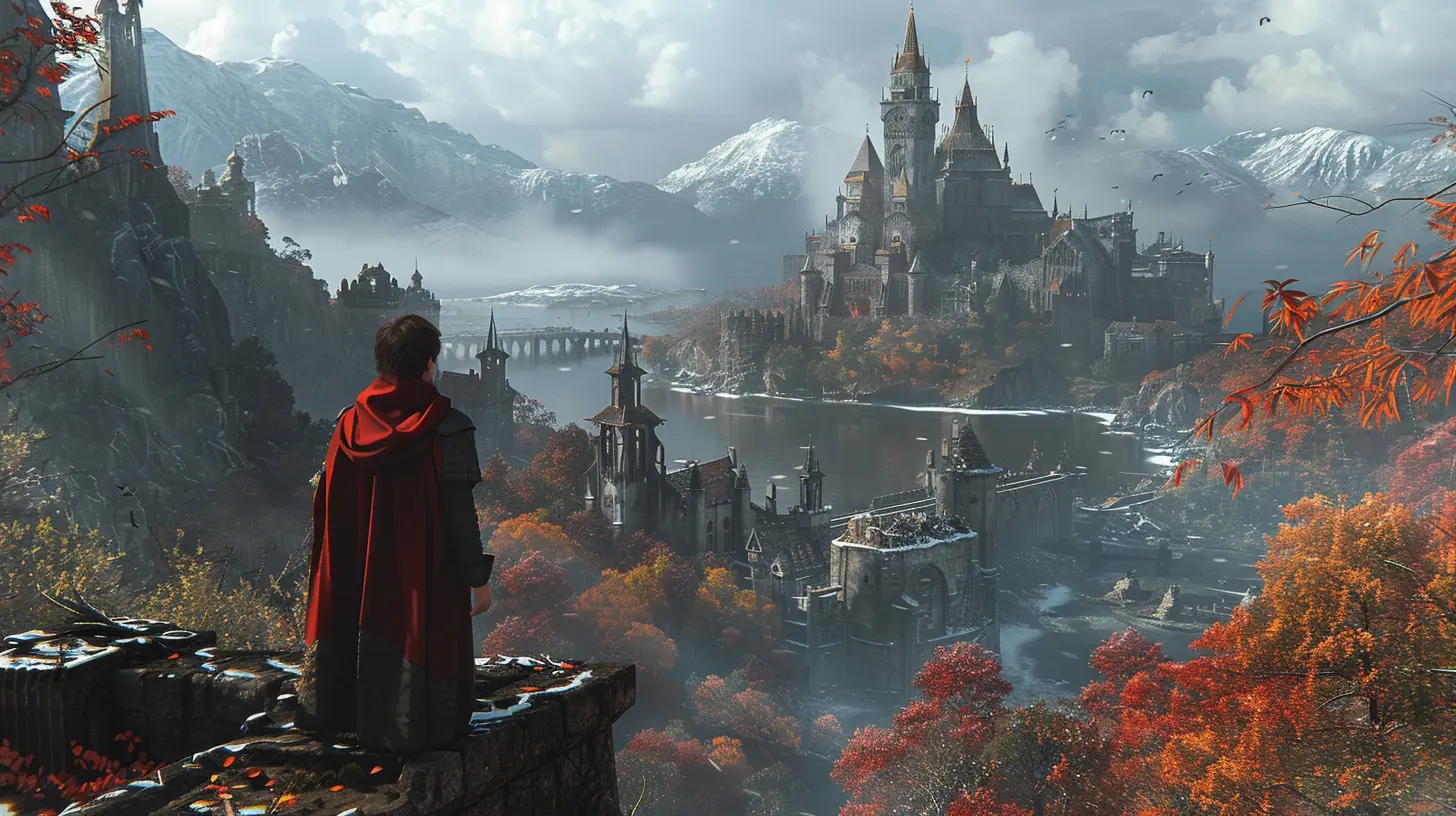
Why Player Choice is the Heartbeat of Open World Games
Ever played a game where your decisions felt like they actually mattered? Like, really mattered? That moment when choosing to help a stranger leads to a whole chain of events you didn’t expect? That’s the magic of player agency.In open world games, this concept isn’t just a feature — it’s the core. You’re not merely following a script. You’re writing your own story.
When games like The Elder Scrolls V: Skyrim or The Witcher 3 give you choices, they’re saying: “Hey, we're not just here to entertain you. We're here to involve you.”
And involvement is what keeps players coming back for hundreds of hours.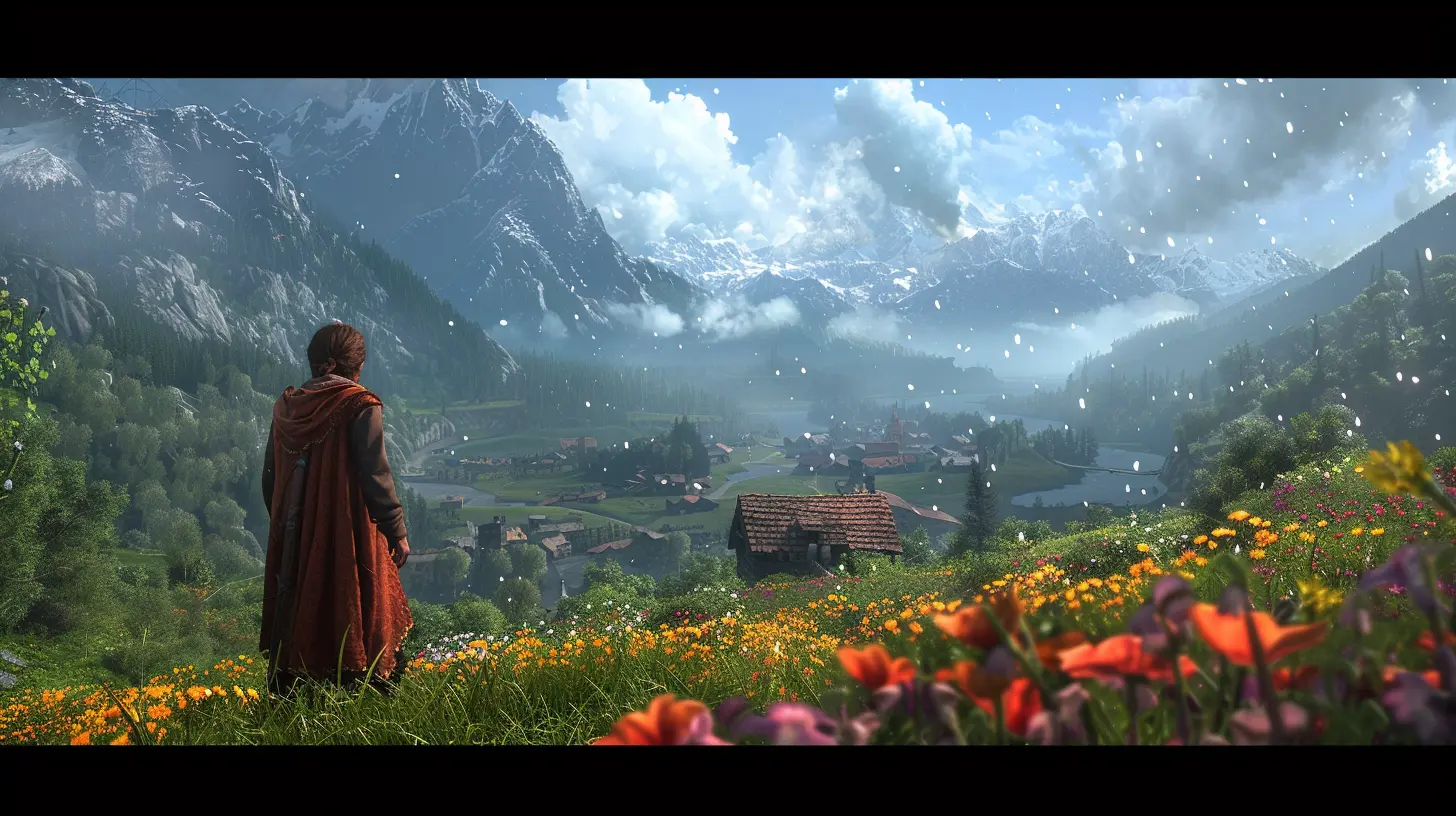
The Evolution of Choice in Gaming
Let’s rewind a bit.Back in the day, linear gameplay ruled the scene. You moved from point A to point B, fought the boss, and progressed. Fun, sure. But kind of like reading a book where you can’t affect the plot.
Fast forward to modern open world masterpieces like Red Dead Redemption 2, Horizon Forbidden West, and Cyberpunk 2077 — and the landscape (literally and figuratively) has changed. Now, you decide how the story unfolds, what factions you align with, and even how the world reacts to your actions.
These choices don’t just change dialogue; they can alter endings, friendships, and even entire regions of the map. That’s more than gameplay — that’s storytelling with a controller.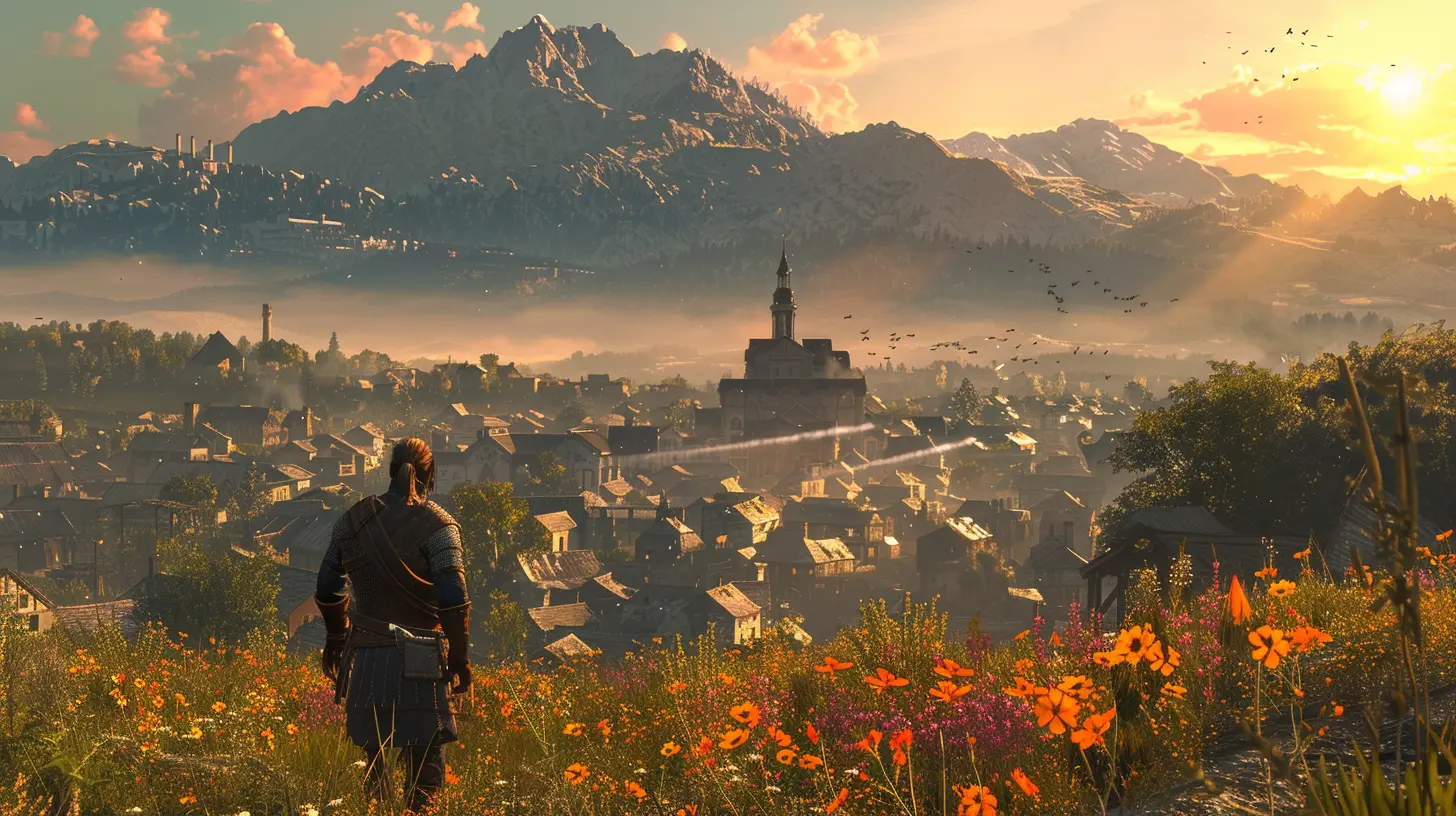
Choice = Immersion
Let’s be real: the more control we have, the more immersive a game becomes.Imagine playing a character who’s supposed to be a noble hero, but you want to role-play as a chaotic trickster. If the game allows it, that’s where things get interesting. Suddenly, you’re not just playing the game — you’re living it.
And it’s not just about big dramatic choices, either. Sometimes, it’s the little things: choosing your dialogue tone, deciding whether to help a stranger, or picking a route that avoids conflict.
All these micro-decisions build a personalized experience. One player might see a town as a peaceful haven, while another sees it as the site of a betrayal. Same game, completely different stories.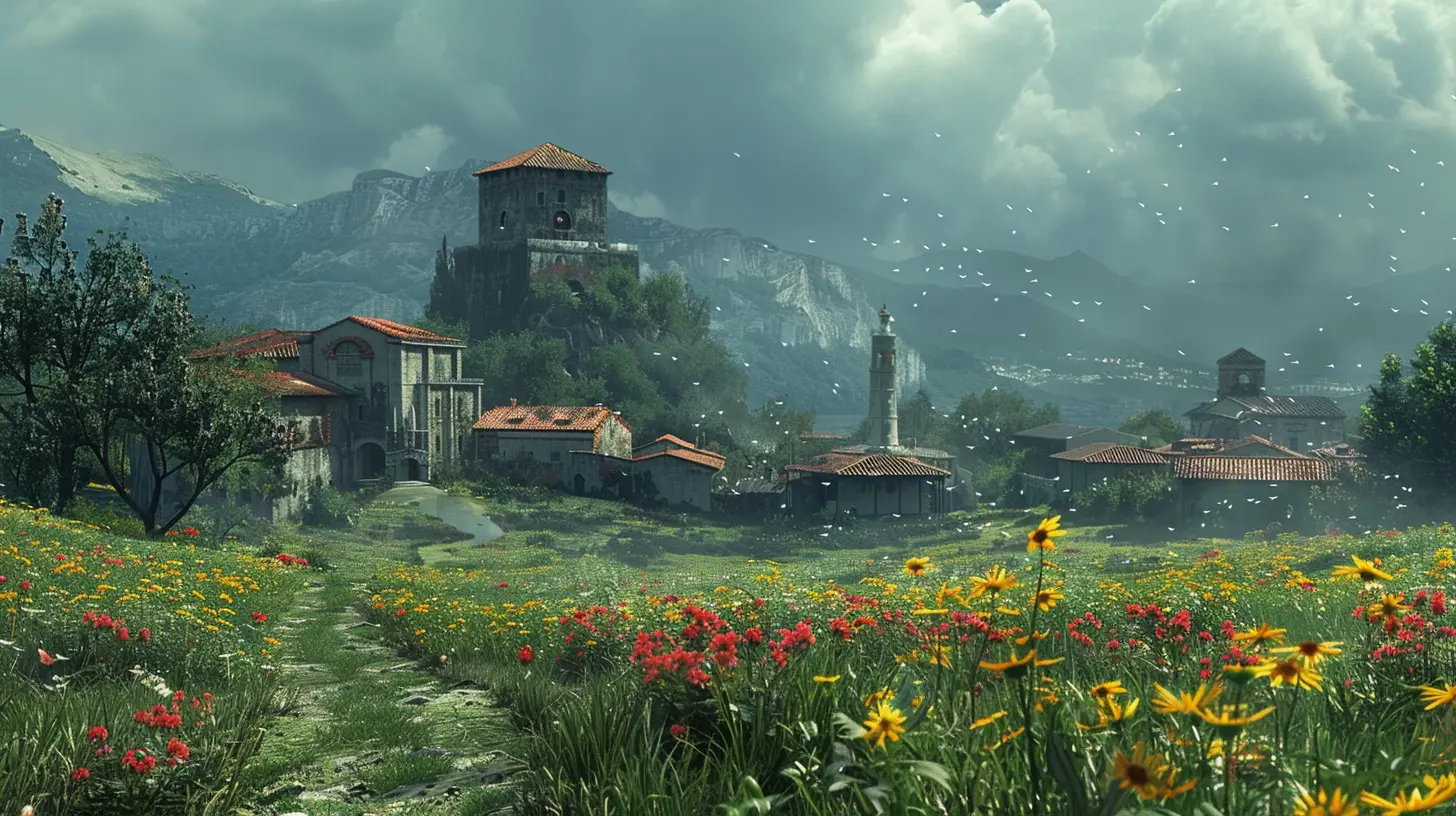
The Butterfly Effect in Gaming
You've heard of the butterfly effect, right? One tiny action can ripple into huge consequences later.Open world games borrow this idea — and game devs love to mess with us using it.
Take Detroit: Become Human, for example. A single choice in an early chapter could mean life or death for a character 10 hours later. You don’t always know what the “right” answer is. And that’s the beauty of it.
It turns gameplay into a constant dance of risk and reward. You start weighing options, wondering how today’s choice will play out tomorrow. It’s nerve-wracking. It’s exciting. It’s addicting.
Morality Systems: Gray Areas Everywhere
Many modern open world games ditch the old black-and-white morality systems, and thank goodness for that. Real life isn’t always good vs evil, so why should games be?Games like Mass Effect or Dragon Age introduced morality meters that tracked your decisions. But newer titles have gone more nuanced. Instead of labeling you as a "renegade" or "paragon," they make you live with your choices—no obvious halo or devil horns attached.
This gray area makes decisions heavier. You’re not being told whether you're right or wrong — you’re just doing what feels right to you. And believe me, that hits way harder than some arbitrary alignment system.
NPC Reactions: Your Reputation Precedes You
Ever enter a town in a game and get greeted with cheers... or wary stares?That’s your choices at work.
Non-player characters (NPCs) reacting to your past decisions is one of the most satisfying payoffs in gaming. When NPCs remember what you did — whether it’s rescuing them or causing property damage — it makes the world feel alive.
It’s like your reputation carries weight. You’re not just a random pixel in the world. You’re a legend (or a cautionary tale), and people behave accordingly.
That’s deep immersion. And it creates a feedback loop where you want to make thoughtful choices because you know the world is watching.
Factions, Alliances, and World States
One of the coolest parts about open world games is joining factions or influencing political dynamics.Take Fallout: New Vegas. Your alliances — or betrayals — can completely shift the power balance in the region. Support the NCR, back the Legion, or forge your own path. Each option changes the game’s outcome in serious ways.
This kind of choice makes you feel like a real leader. You’re not just pressing buttons—you’re steering the wheel of history within the game world.
It adds replay value, too. Players love going back to see how different allegiances play out. That’s storytelling, strategy, and sandbox fun all rolled into one.
Choices That Reflect Us
Here’s where things get personal.The choices we make in games can reflect our personalities — sometimes even more than we realize. Are you generous or ruthless? Patient or impulsive? Do you chase justice or vengeance?
Games with meaningful choices tap into this inner reflection. They give us a safe space to explore sides of ourselves. Sometimes we stick to who we are. Other times, we experiment. And both are incredibly rewarding experiences.
It’s like interactive therapy...but with dragons and loot.
Branching Endings: Your Story, Your Terms
Nothing validates your choices like a unique ending.Multiple endings based on decisions throughout the game are the cherry on top of the player choice sundae. They provide closure that feels earned.
Whether it’s saving the world, causing its downfall, or something in between, these endings serve as a final “Here’s what your journey meant.”
And sure, some players reload to see other endings — but the first one always feels the most authentic. It’s a reflection of your path, your mistakes, your victories.
That’s the power of choice.
The Challenges of Giving Players Freedom
Let’s not pretend it’s all sunshine and unicorns. Giving players choice is tough for developers.More freedom means:
- Multiple story branches
- Reactive NPC behaviors
- World states that change dynamically
- Complex testing for stability
It’s exponential complexity. One seemingly small decision might require different dialogue, quest paths, and cutscenes later on.
But when done right? Man, does it pay off.
It turns a great game into a legendary one.
What’s Next for Player Choice in Open Worlds?
The future? It’s even more interactive.We’re seeing deeper AI-driven interactions, procedural storytelling, and dynamic world simulations. Developers want to make game worlds that feel alive — where even minor interactions build into unique stories.
Imagine a world that remembers everything, adapts as you play, and offers endless narrative possibilities. We’re not quite there yet, but we’re getting closer.
Games like Starfield and Avowed are promising more freedom than ever, suggesting a new era for open world narratives.
So buckle up. The future of player choice is looking ridiculously cool.
Final Thoughts: You’re The Director of Your Adventure
At its core, the power of player choice in open world games gives us something that scripted experiences can’t: authorship.You're not just along for the ride — you’re behind the wheel, navigating your way through moral dilemmas, alliances, battles, and heartbreaks. You own your story.
And that’s what makes open world games so special.
Sure, we love big explosions, pretty graphics, and epic boss fights. But it’s the moments where a choice genuinely surprises us—when we realize the world’s listening—that stick with us long after the credits roll.
So next time you’re standing at a crossroads in a game, go ahead and experiment. Pick the unexpected option. Break the rules. Help the villain. Forgive an enemy.
After all, it’s your world.
all images in this post were generated using AI tools
Category:
Open World GamesAuthor:

Leif Coleman
Discussion
rate this article
2 comments
Solenne McCallum
Player choice in open world games transforms our gaming experience into a personal journey. Every decision shapes our story, allowing us to explore our creativity and embrace unique paths. This empowerment not only enriches gameplay but also deepens our connection to the worlds we inhabit. Let's celebrate the freedom of choice!
January 20, 2026 at 6:03 PM
June Harmon
Player choice in open worlds is like a pizza with a thousand toppings—everyone’s slice is unique, but watch out for the anchovies of poor decisions!" 🍕✨
August 19, 2025 at 2:56 AM

Leif Coleman
Absolutely! Every player's journey is distinct, but navigating choices wisely is key to enjoying the full flavor of the experience. 🍕✨
